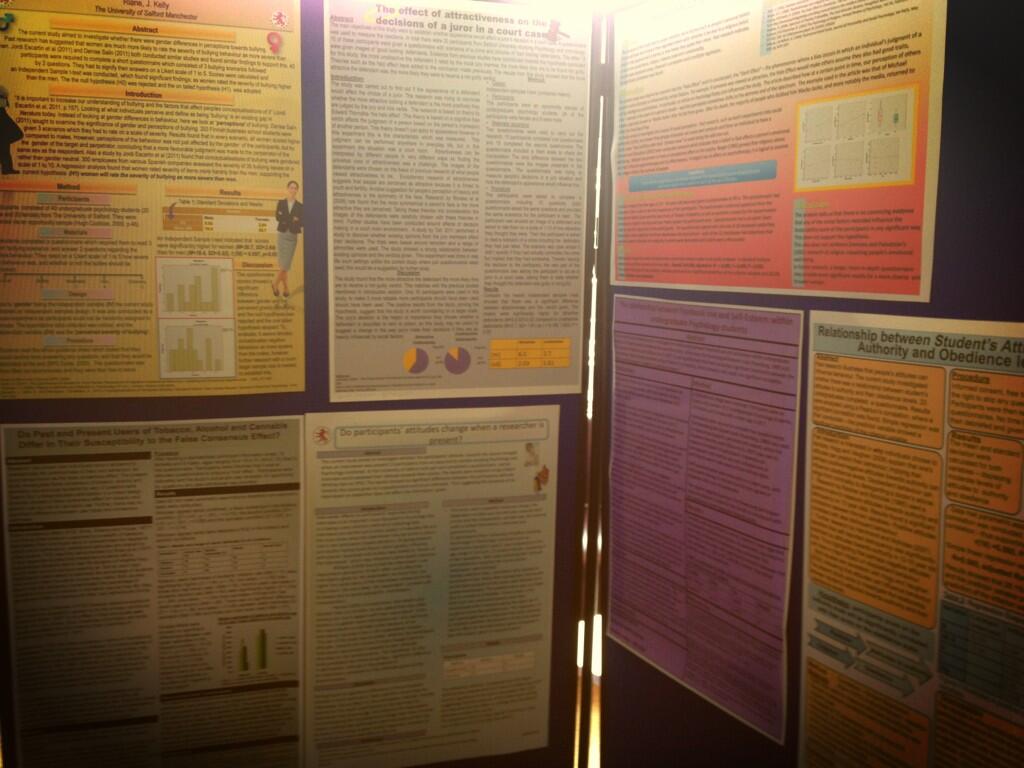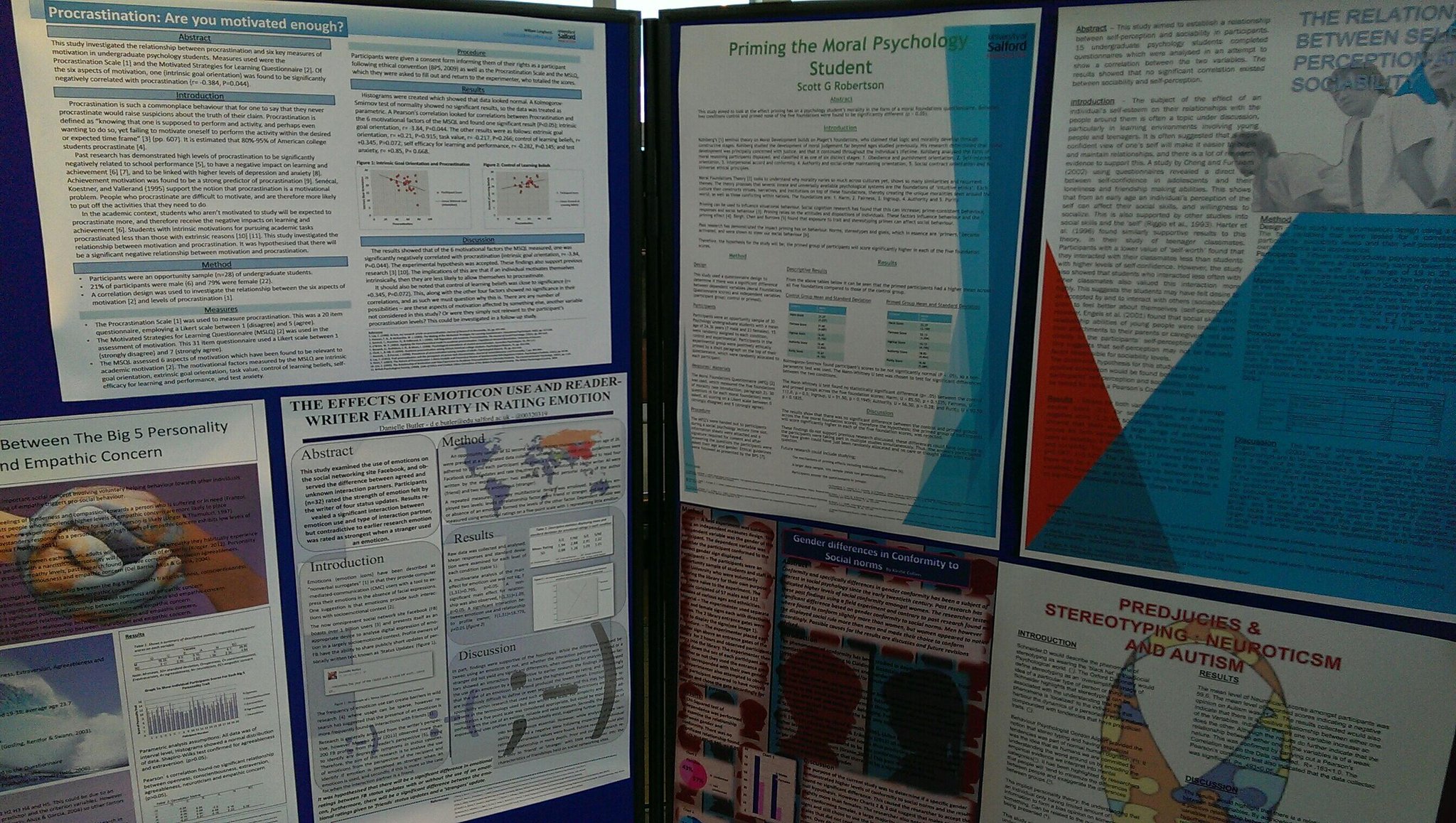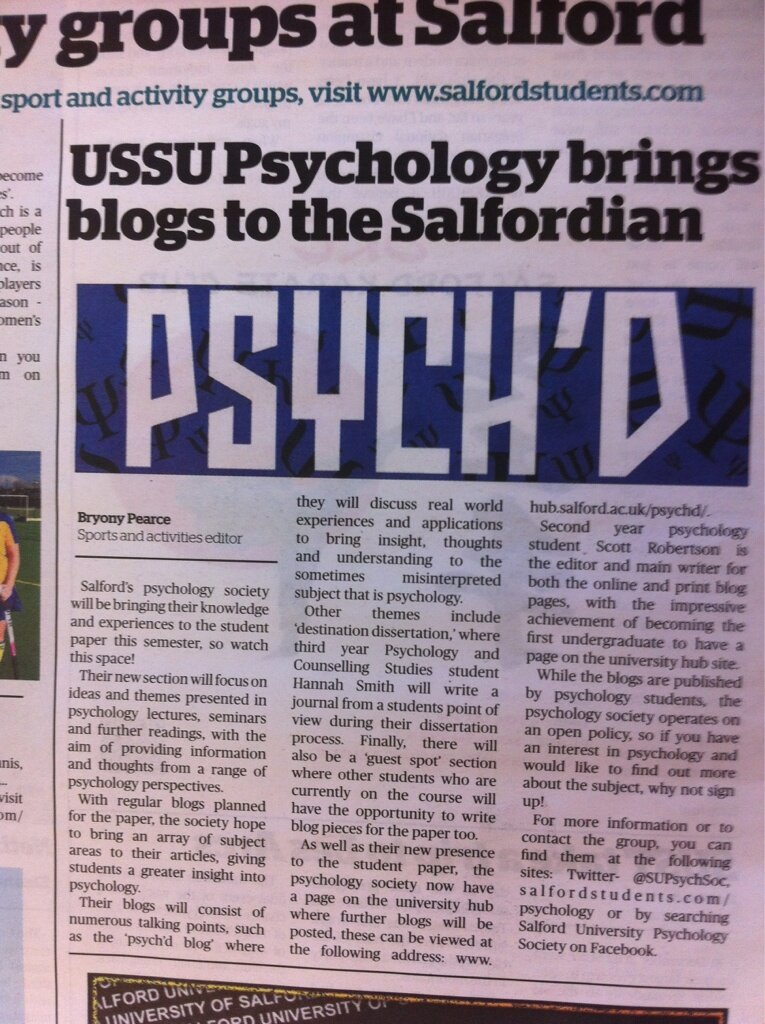 Fleur-Michelle Coiffait is a recently qualified Clinical Psychologist, co-founder & curator for the Early Career Psychologist Network. She tweets @fleurzel, @PMLDresearch, and blogs at Fleurzel, Thoughts and Things. We asked her about getting on in clinical psychology and how to apply for training and assistant posts. Here’s what she had to say.
Fleur-Michelle Coiffait is a recently qualified Clinical Psychologist, co-founder & curator for the Early Career Psychologist Network. She tweets @fleurzel, @PMLDresearch, and blogs at Fleurzel, Thoughts and Things. We asked her about getting on in clinical psychology and how to apply for training and assistant posts. Here’s what she had to say.
So application season for the clinical psychology doctorate is now open (see here for details of the UK Clearing House in Clinical Psychology, how to apply and the different courses) and ‘tis also the season for applying for voluntary or paid assistant psychologist posts (these can mainly be found on jobs.nhs.uk and jobs.ac.uk/psychology). Here are some tips and pointers that may help you think about and refine your applications* These are based on my own experiences as a former psychology graduate, postgraduate student, and assistant psychologist. I have recently completed my doctorate in clinical psychology and am now a qualified clinical psychologist and have supervised and shortlisted assistant psychologist posts.
First of all, I would suggest taking a little time to think about why exactly you want to do this particular job/course. This is a step that we often overlook, but it is really important to be clear with ourselves about our reasons for pursuing such a goal and it is something you are likely to be asked about in interviews. Many people say ‘I just want to help people’ and there’s nothing wrong with this. Nevertheless, I would spend time really thinking why it is that you want to help people. Who is it that you want to help? What is it you are hoping to help them with? Are you being realistic about the help you can give? Does this post/course actually provide opportunities to help in this way or would another similar career/course be more suitable? Do you have personal experiences that drive this motivation? Why is it important to you to be able to help? In clinical psychology and other helping professions, it is necessary to reflect on these things at all stages so that we can remain aware of our own motivations, as these will influence our actions, reactions and how we make sense of the process. I continue to revisit this question and often return to it in supervision as it is so important to recognise ‘our stuff’ and how this may influence our work.
The next step is to familiarise yourself with what the role actually involves – read through the job description, google the trust/university/organisation and if you happen to know anyone who has a connection to the place – ask them what it’s like and what they do there. Sometimes we see a job or course title pop up and we get ahead of ourselves and quickly see what we want to see, which may not be what it actually is. The reality can be a little different – so you need to fully understand as far as possible (some job/course ads sadly don’t give much detail) what is involved in the ‘day to day’ aspects of the post or course. It can help to phone up the department and ask any questions you may have about this, although only phone if you have genuine questions, it won’t win you any extra points to phone up if you haven’t really got anything to ask/say.
Similarly, you need to study the person specification so you understand exactly what they are looking for. Speaking from personal experience, too many times I applied for something despite not meeting the ‘essential’ criteria because it seemed like my ‘dream job’ and then I failed to get shortlisted. Given that there is often a tight turnaround with deadlines, some NHS assistant psychologist posts even closing following a 24 hour window or when a certain number of applications have been received, you need to focus your efforts or you will end up feeling burnt out, deflated and fed up of the process – trust me. It can seem really unfair and frustrating that such posts close so quickly, but I can say from being on the other side as a clinician and shortlister that we are given minimal time out of clinical and other duties to sift through applications and it really is hard work when there are many more high quality applications than there are posts/course places. If our time is restricted, we unfortunately have to cap applications in some arbitrary way.
This brings me on to how you write and set out your application. Make it easy for whoever is reading your form to tick the boxes that they will inevitably have in front of them that map onto the person specification. There’s a really good explanation of common statements usually contained in the person specification for NHS psychology jobs here that will help you think about exactly what the recruiters are looking for so you can provide evidence of this. If it says, for example, that existing experience of working with people with mental health issues is essential, then this is exactly what you have to have and you must also demonstrate this clearly in your application in order for that box to be ticked. I recommend thinking about the ten core competencies of clinical psychologists and how you may already be developing emerging skills and experience in these areas.
The way I structure my own applications is to go through the person specification, grouping similar skills/experiences together. I then describe how I meet each one, evidencing this with examples from my experience to demonstrate this and any reflections I have on that particular skill/experience to show that I understand it and have thought about it. What I mean by reflections is going one step further than simply describing ‘I have done x, y, z.’ What exactly did you learn from that experience? What insight did it give you into the importance of that skill/field? What insight did it give you into the practice of clinical psychologists or academics in that field? Did it make you realise anything about the work? How does it relate to topical issues in the news or on the current political agenda? And so on… Show that you don’t just do things to simply tick the boxes – demonstrate that you think about, learn from, and develop in response to your experiences. It’s not about ‘collecting’ experiences from your CV – it’s the quality of them (and by that I mean what you take from them), rather than the quantity. There are a number of different models of reflective practice that you can use as a framework to start you off if you’re not sure, including Gibbs’ reflective cycle, Johns’ structured reflective prompts, and Rolfe’s three key questions. For further discussion on reflective practice, see here.
Something else that I realised from feedback on one of my assistant psychologist applications many moons ago was that it is good to be confident, but don’t be arrogant or overstate your skills. If your application states that you are already trained in 10 therapies and have been chairing multi-disciplinary meetings for years and have a caseload of 50 patients – why the chuff aren’t you employed as a Professor / Consultant already and why should they bother wasting their money training you if you already know it all?! In all seriousness, it is good to be aware of and realistic about your limitations (another common interview question is about your strengths and weaknesses) and this is an important skill as both a practitioner and a researcher. It means that you won’t do things that you aren’t capable of that are potentially risky if they are outside your skills and experience and also means you know when to seek help and advice where appropriate. Counterintuitively, these attributes are actually valued and respected in the psychology profession – you don’t have to know everything and you never will, so it’s probably a good lesson to learn now 🙂 On the other side of that, be confident in what you do know!
Along these lines, I think that the best candidate for any position is probably the person who shows that they understand the role and what is required, meets the essential requirements, and shows evidence of potential and a readiness and openness to learn and develop. Other key things that employers and admissions staff look for in this field is enthusiasm and warmth. Now these two are pretty hard to convey in a standard application form, especially if you’ve followed all of the other advice above. The way I tackled this one was to not use other people’s forms as a template or formula (this usually freaked me out, led me to compare my experience to theirs and ultimately morph my application into something similar) and to just focus on what I’d done and write what I really thought about things. So, for example, I would mention in application forms that I loved the challenge of every day being different when you work with children. Or that I am passionate about involving carers in research as I feel they often get overlooked. Be real, be you, as at the end of the day it’s a person they want, not a robot who ticks all the boxes. As for warmth, this is really tricky to demonstrate in an application – but once you get to the interview stage – my top tip is simply to smile, try and relax and be friendly and yourself!
Other simple things that really will enhance your application and increase your chances of being shortlisted include checking and double checking your application for typos and spelling mistakes and getting someone else to check it if you have time, just in case you’ve missed any. I realise that spelling isn’t some people’s strong point and we all make typos, but if a busy, tired shortlister who has to read through 30 applications in their lunch break has to read through one littered with mistakes, the reality is that it will probably put them off and risk you being seen as sloppy and unprofessional and possibly mean your application gets put into the no pile. If your application is full of spelling mistakes – what are your reports going to be like? Unfortunately, these sort of judgements will be made based on your form, so polish it up to be the best it can be! Another pet hate of mine is when people don’t capitalise the letter ‘I’ (when referring to oneself). I also dislike the use of acronyms without the phrase initially being used in full, because we may not be familiar with whatever it is you are talking about.
Another tip that helps make your shortlister’s life easier is to make your application as clear, succinct and visually easy to read as you can make it. That means not cramming in as much information as you possibly can in size 8 point font with no paragraphs. Now, I know people are divided on whether you should use headings or not (so that’s your call), but the use of proper paragraphs is recommended, ideally with a line break in between them. With regard to the use of bullet points, again people are divided on this one. I prefer complete sentences, but I think it is ok to use a bulleted list if for example, you’re giving a brief summary of duties involved in a particular position when you have to list your previous employment. List your qualifications and jobs in date order, starting with the most recent, this makes it easier for the person reading your form to have an overview of your experience in their mind. Again, repeat and pay attention to this mantra – make their job easy!
Include any publications you are an author or co-author on (including internal reports or things that have been submitted but not yet published), as well as conference presentations or posters, and reference these correctly using APA or BPS format. As an aside, the BPS Editorial Style Guide is an invaluable freely downloadable resource for all sorts of things, from how to reference a website to whether or not you should write numbers greater than ten out in full in the text (the answer to that is no). Use control+F (or command+F if you’re on a Mac) with the document open to search for the exact thing you’re looking for.
I also think it is really crucial to include some indication that you have a work life balance – i.e. you do not spend every waking hour, 24/7 doing psychology. That is not healthy and anyone who does fill up their spare time with psychology as well as working in or studying it really needs to take a step back to think about their priorities. Self-care is paramount in this profession and it is important that we practice what we preach. You are going to be no use to anyone (or not for any significant period of time) if you do not ensure you have a life outside of psychology where you pursue other interests, socialise, unwind and look after yourself. Indeed, evidence of hobbies and self-care, or at least recognition of the importance of self-care and work life balance, are something I look out for when shortlisting. Someone without this is at risk of burning out, so take heed!
Finally, once you’ve done all that, think about what makes you stand out. What makes you you. Have you done something particularly unusual or interesting that is worth mentioning? Do you have experiences from outside of psychology that are relevant? Think about how you can convey this in your form and weave it in somewhere, obviously within reason and within the boundaries of taste, relevance and appropriateness to the application.
If after submitting your form you are unsuccessful, read through your form and think about why and what you could possibly improve. Ask for feedback on your form from the shortlisters (although this is not always given at the application stage) and take this on board and do something to address it. It can be disheartening and upsetting to not get a job or place on a course, but it is an opportunity to learn and refine your application, so dust yourself off and go back to it when you’re feeling a little better and have had some space to reflect. If you know anyone who is in the field – ask them to read over your form and share their thoughts (also take them with a pinch of salt, as like this blog post, it is just their opinion). It may be that they just had too many applicants who were all really reallly good and they had to just find a way to cut the cloth and you lost out on something that you can’t change. In that case, you just have to keep your head up, learn from it, and keep going.
As they say in the Hunger Games, may the odds be ever in your favour….
*disclaimer: sadly, following this advice does not guarantee you a place/post and is my personal opinion based on my own experiences 🙂


 Fleur-Michelle Coiffait is a recently qualified Clinical Psychologist, co-founder & curator for the Early Career Psychologist Network. She tweets
Fleur-Michelle Coiffait is a recently qualified Clinical Psychologist, co-founder & curator for the Early Career Psychologist Network. She tweets 









